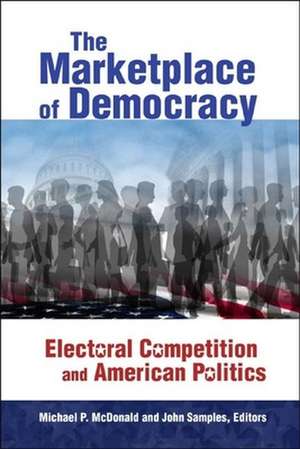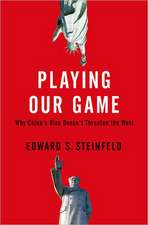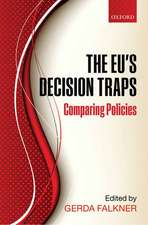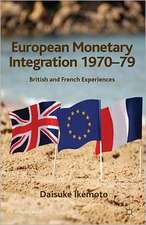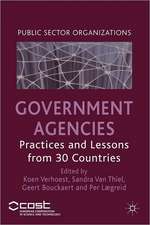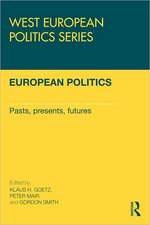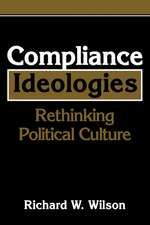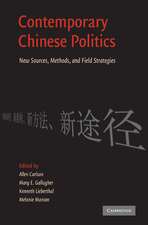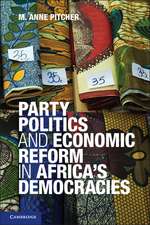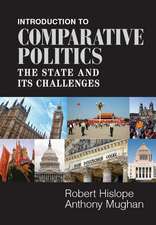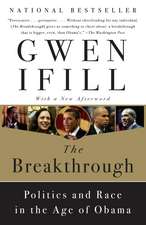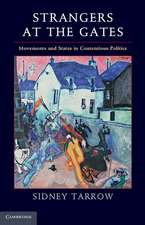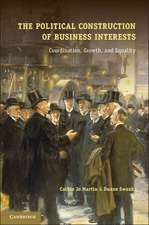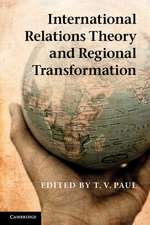The Marketplace of Democracy: Electoral Competition and American Politics
Editat de Michael P. McDonald, John Samplesen Limba Engleză Paperback – 30 aug 2006
Since 1998, U.S. House incumbents have won a staggering 98 percent of their reelection races. Electoral competition has also declined in some state and primary elections. The Marketplace for Democracy combines the resources of two eminent research organizations—Brookings and the Cato Institute—to address several important questions about our democratic system. How pervasive is the lack of competition in arenas only previously speculated on, such as state legislative contests and congressional primaries? What have previous reform efforts, such as direct primaries and term limits, had on electoral competition? What are the effects of redistricting and campaign finance regulation? What role do third parties play? In sum, what does all this tell us about what might be done to increase electoral competition? The authors, including a number of today's most important scholars in American politics, consider the historical development, legal background, and political aspects of a system that is supposed to be responsive and accountable yet for many is becoming stagnant, self-perpetuating, and tone-deaf. How did we get to this point, and what—if anything—should be done about it?
Elections are the vehicles through which Americans choose who governs them, and the power of the ballot is still the best lever ordinary citizens have in keeping public officials accountable. The Marketplace of Democracy considers different policy options for increasing the competition needed to keep American politics vibrant, responsive, and democratic. Contributors include Stephen Ansolabehere (MIT), William D. Berry (Florida State University), Bruce Cain (University of California–Berkeley), Thomas Carsey (Florida StateUniversity) James Gimpel (University of Maryland) John Hanley (UC–Berkeley), John Mark Hansen (University of Chicago), Paul S. Herrnson (University of Maryland) Gary Jacobson (University of California–San Diego) Thad Kousser (UC–San Diego), Frances Lee (University of Maryland), John Matsusaka (University of Southern California), Kenneth Mayer (University of Wisconsin–Madison), Michael P. McDonald (Brookings Institution and George Mason University), Jeffrey Milyo (University of Missouri–Columbia), Richard Niemi (University of Rochester) Nate Persily (University of Pennsylvania Law School), Lynda Powell (University of Rochester), David Primo (University of Rochester), John Samples (Cato Institute), and James Snyder Jr. (MIT).
Elections are the vehicles through which Americans choose who governs them, and the power of the ballot is still the best lever ordinary citizens have in keeping public officials accountable. The Marketplace of Democracy considers different policy options for increasing the competition needed to keep American politics vibrant, responsive, and democratic. Contributors include Stephen Ansolabehere (MIT), William D. Berry (Florida State University), Bruce Cain (University of California–Berkeley), Thomas Carsey (Florida StateUniversity) James Gimpel (University of Maryland) John Hanley (UC–Berkeley), John Mark Hansen (University of Chicago), Paul S. Herrnson (University of Maryland) Gary Jacobson (University of California–San Diego) Thad Kousser (UC–San Diego), Frances Lee (University of Maryland), John Matsusaka (University of Southern California), Kenneth Mayer (University of Wisconsin–Madison), Michael P. McDonald (Brookings Institution and George Mason University), Jeffrey Milyo (University of Missouri–Columbia), Richard Niemi (University of Rochester) Nate Persily (University of Pennsylvania Law School), Lynda Powell (University of Rochester), David Primo (University of Rochester), John Samples (Cato Institute), and James Snyder Jr. (MIT).
Preț: 233.04 lei
Nou
Puncte Express: 350
Preț estimativ în valută:
44.60€ • 48.43$ • 37.46£
44.60€ • 48.43$ • 37.46£
Carte tipărită la comandă
Livrare economică 22 aprilie-06 mai
Preluare comenzi: 021 569.72.76
Specificații
ISBN-13: 9780815755791
ISBN-10: 0815755791
Pagini: 312
Dimensiuni: 152 x 229 x 22 mm
Greutate: 0.45 kg
Editura: Brookings Institution Press
Colecția Brookings Institution Press
ISBN-10: 0815755791
Pagini: 312
Dimensiuni: 152 x 229 x 22 mm
Greutate: 0.45 kg
Editura: Brookings Institution Press
Colecția Brookings Institution Press
Notă biografică
Michael P. McDonald is an assistant professor at George Mason University and a visiting fellow in Governance Studies at the Brookings Institution. John Samples directs the Center for Representative Government at the Cato Institute and teaches political science at Johns Hopkins University.
Descriere
A Brookings Institution Press and Cato Institute publication
Since 1998, U.S. House incumbents have won a staggering 98 percent of their reelection races. Electoral competition has also declined in some state and primary elections. The Marketplace for Democracy combines the resources of two eminent research organizations—Brookings and the Cato Institute—to address several important questions about our democratic system. How pervasive is the lack of competition in arenas only previously speculated on, such as state legislative contests and congressional primaries? What have previous reform efforts, such as direct primaries and term limits, had on electoral competition? What are the effects of redistricting and campaign finance regulation? What role do third parties play? In sum, what does all this tell us about what might be done to increase electoral competition?
The authors, including a number of today's most important scholars in American politics, consider the historical development, legal background, and political aspects of a system that is supposed to be responsive and accountable yet for many is becoming stagnant, self-perpetuating, and tone-deaf. How did we get to this point, and what—if anything—should be done about it? Elections are the vehicles through which Americans choose who governs them, and the power of the ballot is still the best lever ordinary citizens have in keeping public officials accountable. The Marketplace of Democracy considers different policy options for increasing the competition needed to keep American politics vibrant, responsive, and democratic.
Contributors include Stephen Ansolabehere (MIT), William D. Berry (Florida State University), Bruce Cain (University of California–Berkeley), Thomas Carsey (Florida StateUniversity) James Gimpel (University of Maryland) John Hanley (UC–Berkeley), John Mark Hansen (University of Chicago), Paul S. Herrnson (University of Maryland) Gary Jacobson (University of California–San Diego) Thad Kousser (UC–San Diego), Frances Lee (Univer
Since 1998, U.S. House incumbents have won a staggering 98 percent of their reelection races. Electoral competition has also declined in some state and primary elections. The Marketplace for Democracy combines the resources of two eminent research organizations—Brookings and the Cato Institute—to address several important questions about our democratic system. How pervasive is the lack of competition in arenas only previously speculated on, such as state legislative contests and congressional primaries? What have previous reform efforts, such as direct primaries and term limits, had on electoral competition? What are the effects of redistricting and campaign finance regulation? What role do third parties play? In sum, what does all this tell us about what might be done to increase electoral competition?
The authors, including a number of today's most important scholars in American politics, consider the historical development, legal background, and political aspects of a system that is supposed to be responsive and accountable yet for many is becoming stagnant, self-perpetuating, and tone-deaf. How did we get to this point, and what—if anything—should be done about it? Elections are the vehicles through which Americans choose who governs them, and the power of the ballot is still the best lever ordinary citizens have in keeping public officials accountable. The Marketplace of Democracy considers different policy options for increasing the competition needed to keep American politics vibrant, responsive, and democratic.
Contributors include Stephen Ansolabehere (MIT), William D. Berry (Florida State University), Bruce Cain (University of California–Berkeley), Thomas Carsey (Florida StateUniversity) James Gimpel (University of Maryland) John Hanley (UC–Berkeley), John Mark Hansen (University of Chicago), Paul S. Herrnson (University of Maryland) Gary Jacobson (University of California–San Diego) Thad Kousser (UC–San Diego), Frances Lee (Univer
